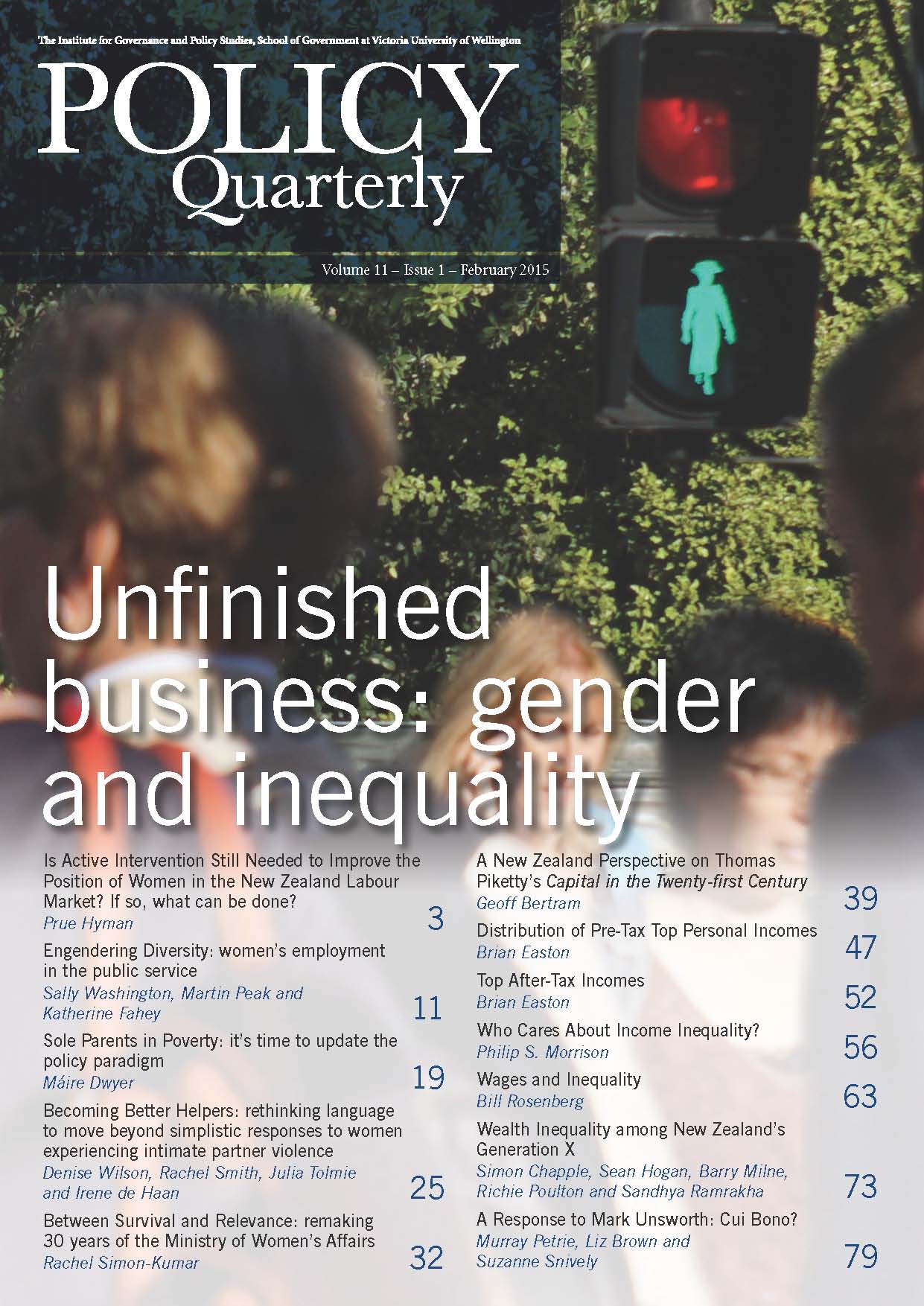Is active intervention still needed to improve the position of women in the New Zealand labour market
DOI:
https://doi.org/10.26686/pq.v11i1.4525Keywords:
women’s educational achievements, equal employment opportunity (EEO), substantial gender inequities, indirect discrimination, unemployment rate for women, gender gap in earnings, UN Convention on the Elimination of All Forms of Discrimination Against Women (CEDAW)Abstract
Substantial differences in employment and occupation patterns, levels of seniority and earnings between men and women remain in the New Zealand labour market despite considerable narrowing of the gaps favouring men. The extent, if any, to which remaining differences amount to discrimination is controversial. Interpretations vary along many dimensions, including political persuasion. With women’s educational achievements having surpassed those of men on many measures, such as the proportion of those gaining a first degree, some argue that equal employment opportunity (EEO) has been achieved and discrimination against women no longer exists. However, feminist economists show how economic systems and policies still involve substantial gender inequities, with indirect discrimination common inside and outside the labour market, together with greater constraints on women’s choices.
Downloads
Downloads
Published
Issue
Section
License
Permission: In the interest of promoting debate and wider dissemination, the IGPS encourages use of all or part of the articles appearing in PQ, where there is no element of commercial gain. Appropriate acknowledgement of both author and source should be made in all cases. Please direct requests for permission to reprint articles from this publication to Policy-Quarterly@vuw.ac.nz.



